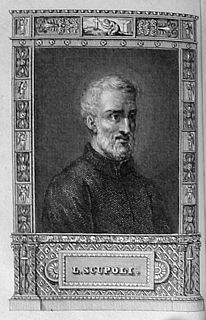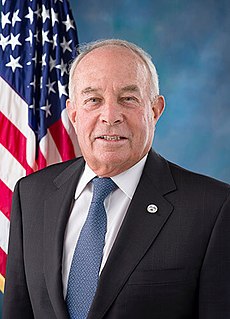A Quote by Francois de La Rochefoucauld
We often persuade ourselves to love people who are more powerful than we are, yet interest alone produces our friendship; we do not give our hearts away for the good we wish to do, but for that we expect to receive.
Related Quotes
Most people think of love as some sort of power outside of themselves that will "take them away from all of this." Sadly, this is not the case. Love exists only within our own hearts, and to have happy relationships we must first become truly loving people. And as we fill our hearts with love by expressing love for others in thought, word, and deed ("acting as if" until we make it happen if necessary), that love can heal our own lives, help to solve our problems, and enable us to feel good about ourselves.
Avarice, greed, concupiscence and so forth are all based on the mathematical truism that the more you get, the more you have. The remark of that it is more blessed to give than to receive is based on the human truth that the more you give away in love, the more you are. It is not just for the sake of other people that tells us to give rather than get, but for our own sakes too.
The more love we give away, the more we have left. The laws of love differ from the laws of arithmetic. Love hoarded dwindles, but love given grows. If we give all our love, we will have more left than they who save some. Giving love, not receiving, is important; but when we give with no thought of receiving, we automatically, and inescapably receive abundantly. Heaven is a by-product of love. When we say, "I love you," we mean that "a little of God's love flows from me to you." Thereby, we do not have less, but more. For in flowing, the quantity is magnified.
Insanity laughs under pressure we're cracking
Can't we give ourselves one more chance
Why can't we give love that one more chance
Why can't we give love
Cause love's such an old fashioned word
and love dares you to care for
The people on the edge of the night
And love dares you to change our way of
Caring about ourselves
This is our last dance
This is our last dance
This is ourselves
Under pressure
Our hearts, they need a mirror, Tessa. We see our better selves in the eyes of those who love us. And there is a beauty that brevity alone provides.” He dropped his gaze, then raised it to hers. “I would give you everything of myself,” he said. “I would give you more in two weeks than most men would give you in a lifetime.
I suspect that the most basic and powerful way to connect to another person is to listen. Just listen. Perhaps the most important thing we ever give each other is our attention And especially if it's given from the heart. When people are talking, there's no need to do anything but receive them. Just take them in. Listen to what they're saying. Care about it. Most times caring about it is even more important than understanding it. Most of us don't value ourselves or our love enough to know this.
We should feel with our whole heart that we have no one to rely on except God, and that from Him and Him alone can we expect every kind of good, every manner of help, and victory. Since we are nothing, we can expect nothing from ourselves, except stumblings and falls, which make us relinquish all hope of ourselves. On the other hand, we are certain always to be granted victory by God, if we arm our heart with a living trust in Him and an unshakable certainty that we will receive His help.
We all have the power, intuition, and ability to think and act for ourselves until we give that power away. We give our power away because we're bullied into thinking we aren't good enough and someone else must know better than us; therefore, we should give over our instincts and act according to instruction.
Do any of us, except in our dreams, truly expect to be reunited with our hearts' deepest loves, even when they leave us only for minutes, and on the most mundane of errands? No, not at all. Each time they go from our sight we in our secret hearts count them as dead. Having been given so much, we reason, how could we expect not to be brought as low as Lucifer for the staggering presumption of our love?



































